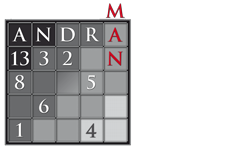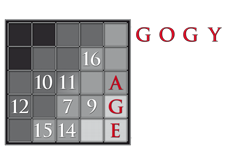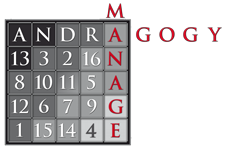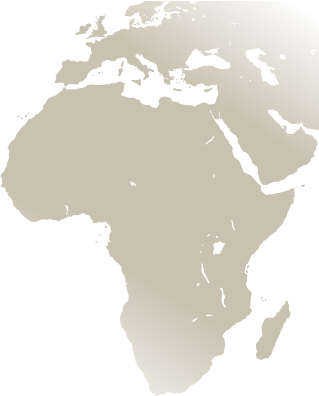



Professional experience in Equatorial and Central Africa since 2003:
Burundi, Chad, Gabon, Cameroon, Rwanda and the D.R. Congo
(cfr DR Congo/Zaire as well)
A. Chad: Technical assistance (advice & support) to the office of the EDF NAO
1. Dates: since July 2018
2. Location: N’Djamena
3. Beneficiary organisation and parties involved: EDF NAO units (Ministry of Economy and Plan development), NAO support project, technical ministries and programme management units on relate intervention sectors.
4. Position: Main expert and Technical assistance team leader (3 other main or long term experts), in partnership with Landell Mills Ltd. (GB).
5. Responsibilities: Following the team leader’s premature defection (Dec. 18), in charge of executing the final year of the technical assistance contract (some 4 years initially amounting to 62 months’ added up presence for the 4 experts not including the short term ones) on both “dotted” and phasing-out mode w.r.t. the team leader; Involving some 7.5 months on location to spread out over a year (till July 2019).
6. Major activities and achievements:
Coordination of the TA and support to the NAO staff while taking up the challenge of succeeding in the context of a project facing a crisis and very much behind schedule mid 2018 with respect to goals to be achieved in many regards (institutional reinforcement, mastering of EDF finance and contract procedures, strategic information / M&E system and constitution of a critical mass of trained officials. Support on a coaching mode to staff in charge of tasked with NAO function on a daily basis; All of this while providing methodological support to:
Programming, identifying and formulating if projects,
Strictly abiding to to EDF financial procedures,
Managing call for tenders or proposals,
Executing many a training programs including those specific to EDF management (such as “TOM-AT” software).
In the midst of the challenge to take up, reactivating the institutional transition i.e. progressively transferring what the NAO department within the ministry is tasked with from the on-going support programme mainly consisting in an external let alone parallel unit to the national administration in an obvious perennial aim. A particular highlight is put on training (“capacity reinforcement) following the andragogy’s precepts (adult / vocational training) as well as on communication between stake-holders and partners within the NAO system and hence on information management through the exchange and collaboration structures as to EDF projects and programmes supervision and ownership.
Besides, a particular stress is set on communication between actors or partners of the NAO system hence on improving the management information system through all collaboration and exchange structures concerning matters of EDF funded project ownership, project management and implementation.
7. Skills and experience acquired:
Yet again another more in-depth involvement of Roland Deschamps on the long run as to reinforcing the EDF NAO staff. Although this time according to an execution sequence more to-date lately: the combination of the phasing out (less involvement every year) and the “dotted” (not a continuous presence of TA on location) modes.
Besides this assignment’s specific challenge consisted in resuming on short notice a mission initialised some three years before (back in September 2015), which wasn’t that obvious as personnel allocated to the main entity turned out to be very unstable (many resignations). Moreover, the project’s main axis was very short of being abandoned as parties concerned (TA, NAO unit et EU delegation) could simply not agree on the terms of reference, hence on the contents of the tender dossier for the recruitment of the trainers to be tasked with implementing the odd thirty modules foreseen.
Furthermore, there were some 5 weeks left to take this up as the deadline for financing was end of August. In spite of a very tense atmosphere, parties involved having lost patience, Roland Deschamps’ intervention allowed the tender dossier to be completed. Having also suggested another source of funding, the call for tenders was launched successfully (3 submissions) in September rather than in August. Once the contract awarded (300,00 €), the training programme (6 months) could be implemented starting January. 2019.
Last but not least, andragogy being one of Andaman’s areas of expertise, it turned out to be a very nice opportunity in being involved in a training programme designed according to its philosophy.
It also came as an occasion for Roland Deschamps to return to Chad four years after having lead the Support to the NAO formulation team (2 other experts) and later, see with his own eyes how it was being implemented. This in the context of a deliquescent public service and a country facing a genuine crisis since 2015 and the fall of oil prices, combined with a geopolitical (Nigeria, Cameroon, Libya, South Sudan, CAR) and security environment quite frail and unstable (armed rebellion in the country’s centre).
B. Republic of Cameroon: Final evaluation of the 10th EDF support to the NAO office project
1. Dates: October - November 2014 & March 2015
2. Location: Yaoundé
3. Organisation and parties involved: NAO staff (EDF Support unit - CAON-CAM), EU delegation, technical ministries, national EDF tenders commission, project/programme implementation units.
4. Position: Short-term expert, (in partnership with ETI Consulting)
5. Responsibilities: as a member of a team of 2 experts, tasked with evaluating the performance of the project supporting the NAO and his office in carrying out all EDF management related duties as they are spelled out in the Cotonou Agreement.
6. Major activities ans achievements:
Carrying out of an in-depth assessment of the performance of the NAO support unit in managing all EDF funded projects and programmes in Cameroon; This involved meeting or exchanging with all parties involved in the technical ministries (several direct labour set-ups), the PIUs, the EUD and the CAON managerial staff. As usual, this was done in order to assess the project's performance in light of the DAC criteria i.e. sustainability, impact, effectiveness, efficiency and relevancy. The assignment was carried out in two stages, the initial and main one being implemented between October and November. Recommendations also focused on the best possible NAO set up and technical assistance or support to be funded under the 11th EDF as of 2015, which included the technical cooperation facility ('TCF') as well.
7. Skills and experience acquired:
Although very often in a situation where assessing the on-going project's performance in the framework of other assignments, this was an opportunity to be involved in a typical evaluation mission while looking into the strategic particularity of supporting an NAO office yet another time.
All the same an opportunity to return to Cameroon over two years after having provided technical assistance to the very NAO office and support unit already in place back in 2012.
C. Republic of Chad: technical assistance (advice & support) to the NAO’s office in identifying and formulating the next support to the NAO project for the 11th EDF
1. Dates: February – June 2014
2. Location: Ndjamena
3. Organisation and parties involved: NAO staff (including the support unit) and ministry of planning, EU delegation, technical ministries and project/programme implementation units across all sectors.
4. Position: short-term expert, in partnership with ARS Progetti.
5. Responsibilities: team leader in charge of 2 experts specialised in vocational training and NAO support set-ups.
6. Major activities and achievements:
Performance and organisational analysis of the NAO support set up’s structure in Chad; Drafting of relevant documents as to the identification (PI fiche) and the formulation (Action fiche) of the project; Presentation of the different options possible and recommendations notably regarding vocational training and human resources management as well as with respect to the reinforcement of the Chad administration; Organisation of several participatory workshops with all parties involved in the NAO system.
7. Skills and experience acquired:
Yet an other opportunity to take part in the highly strategic issue of supporting the EDF NAO function and related set-ups as well as reflecting on the EU’s aid effectiveness in general in the frame of the Paris Declaration/ High level forums agenda (ownership, harmonisation, alignment, results-based management and mutual accountability); In-depth analysis of paradigms concerning the absorption capacity of public administrations to integrate the NAO function, which is complex and with many folds.
D. Republic of Burundi: Technical assistance (advice & support) to the NAO’s office in the field of monitoring and evaluation of EDF funded projects and programmes
1. Dates: November 2012 – April 2013 & November – December 2013
2. Location: Bujumbura
3. Organisation and parties involved: NAO staff (Support unit included: CELON-FED), EU delegation, technical ministries and project/programme implementation units.
4. Position: short-term expert, in partnership with Sofreco.
5. Responsibilities: in a first stage, in charge of providing technical support with respect to M&E on one hand while designing and then executing a training programme in related matters (PCM, logical framework approach…); in a second stage (late 2013), in charge of following up on the technical support provided earlier as well as supporting the 11th EDF programming exercise to come.
6. Major activities and achievements:
Baseline analysis of the M&E system between the NAO’s office, the technical ministries and the project implementation units; coaching of the Celon staff in developing M&E tools, communication channels and strategic positioning; design and execution of a two month training programme (several components) provided to Celon staff, technical focal points within ministries and PIU staff; This included larger workshops on specific issues and involving staff of the European union delegation. The training programme was completed and the NAO office eventually adopted as well as implemented new M&E tools (such as data collection systems, an “essential indicators” fiche, dashboards etc.) between February and March 2013. During the second stage of the assignment, carrying out of a participatory assessment of the M&E tools put in place between November 2012 and April 2013 in order to reinforce the information system between the NAO’s office, the technical ministries and the project implementation units; coaching of the Celon staff and the project teams as to improving the M&E tools on trial, communication channels and strategic positioning of both the NAO support team and the EU delegation.
7. Skills and experience acquired:
Another professional experience acquired in a post-conflict country that has been through a very long period (since before the 1962 independence up to 2010) of swathes of political instability and severe ethnic conflicts followed by the displacement and reinsertion of people on top of overall extreme poverty. The EUD was very attentive to the evolution of my assignment as it was very concerned about acquiring strategic information of project performance bearing in mind that € 90 millions (out of a total of € 230 millions EDF envelope) are disbursed through direct budgetary support. The EU Commissioner for development visited Burundi on 20-21 February.
The second phase of the assignment provided us with a unique opportunity to follow-up on the implementation of an M&E system through the introduction of information collection tools. As M&E systems are often, let alone systematically, weak because of the lack of sufficient resources allocated to them (human, technical or financial), it was a very typical case of an attempt in reinforcing M&E tools in spite of the many constraints. It was also an opportunity to support the NAO support unit and its focal points within technical ministries in its capacity-building exercise on top of seeing how on-going programmes are faring.
E. Gabon Republic: Assistance and council to the NAO with respect to the organisation of the
EDF support unit
1. Dates: June-July 2012
2. Location: Libreville
3. Organisation and parties involved: NAO staff (Cellule d’appui à l’ordonnateur national du FED - CAON-GAB); EU delegation, technical ministries and project/programme implementation units
4. Position: short-term expert, team leader in partnership with Sofreco.
5. Responsibilities: 2 experts in charge of making recommendations with respect to managing EDF funds in the Gabon. This included an in-depth assessment on the whole NAO system in the middle of which stands his staff (the CAON - mostly supported by the Gabon government since 2-3 years in this particular case) in the context of 10th EDF (already reduced at mid-term) envelope to be committed within a year and a half at latest.
6. Major activities and achievements:
Completion of a comprehensive operational audit of the CAON and the NAO system as a whole in Gabon. ; Analysis of the internal organisation and resources management (human notably), relationships with the EUD and PIUs, technical ministries and newly established government agencies as well as other major donors or technical and financial partners. To each weakness or threat identified, a recommendation was made in relation with forces and opportunities one could build on within the system. The assessment was carried out in a participative manner as CAON staff members (made of civil servants and contracted employees) were regularly invited to share their concerns or realities through interviews or small working sessions.
7. Skills and experience acquired:
A major challenge to meet in a quite difficult and tense context in which the management of EDF funds is very much weakened in a country experiencing an in-depth mutation since the new government issued from the 2009 elections embarked on restructuring its administration.
A task even more challenging indeed as time allocation was short in comparison with the diagnosis to be established (which involved many a meeting with focal persons) and the fragile situation the CAON found itself when government resources tended to be irregular or scarce notably with the defection of experienced staff members.
F. Republic of Cameroon: Technical assistance to the NAO support unit with respect of its internal procedures guide and the EDF overall management
1. Dates: March and May 2012
2. Location: Yaoundé and Douala
3. Organisation and parties involved: NAO staff (Cellule d’appui à l’ordonnateur national du FED - CAON-CAM); EU delegation, technical ministries, national EDF tenders commission, project/programme implementation units.
4. Position: short-term expert, team leader (in partnership with MDF international)
5. Responsibilities: as a team of 2 experts, tasked with a technical assistance assignment with respect to the drafting of a « strategic framework » on the management and monitoring of the European aid (EDF mostly) as well as with drafting a internal procedures guide for the CAON on the other hand.
6. Major activities ans achievements:
Carrying out of an in-depth assessment of the current situation in terms of projects and programmes funded which involved meeting or exchanging with all parties involved in the technical ministries (several direct labour set-ups), the PIUs, the EUD staff and the CAON managerial staff. This aimed at establishing or reminding roles and responsibilities of all involved in the project cycle be it programmes in the process of being identified, formulated, executed or evaluated. Amongst other things, a clear distinction needed be recalled between the master of works and the project manager attributions.
The assignment also involved coaching the CAON staff in carrying out its specific asks in terms of project manager, mainly with respect to reporting and/or monitoring & evaluation, management information system and executing programme-estimates such as the one pertaining to the Support to the NAO project (PAON in French) in a context of a CAON entirely supported by the EDF but having its own results and objectives to report on.
The achievements include:
1/ the drafting of a code of conduct (good practices) on the 10th EDF (€246,5 millions) management as to the roles to be played by all stakeholders at the different phases of the project cycle;
2/ the drafting of a very comprehensive guide on internal procedures to the CAON-CAM in order to prepare its phasing out « exit strategy » (of the PAON) and reinforce the role of government and its technical departments in their respective qualities of master of works or project manager.
This involved holding an appropriation workshop (1 day) focusing on these very roles and the responsibilities attached to them. This exercise included the participatory adoption of the above-mentioned documents by representatives of all stakeholders to the « NAO system » including the UE delegation and the technical departments of ministries concerned.
7. Skills and experience acquired:
A very typical case of a NAO office entirely financed through a specific EDF project (PAON) and supposed to act as an interface between the technical ministries and the EC (EUD) while formally falling under the minister that has been designated as the NAO (actually in charge of Planning and land administration) although not it does not have its own infrastructure. An opportunity to complete ones experience on how to co-manage the EDF through a devoted structure more or less integrated to the national administration.
An opportunity all the same to discover a country with much variety as to culture and geography (« Africa in miniature ») formally belonging to the Central Africa ensemble (as a neighbour to Gabon, Equatorial Guinea, the Congo and the CAR) but as much connected to West Africa (as a neighbour to Nigeria) and the Sahel (as a neighbour to Niger and Chad through the eponymous lake all the way up north).
G. Technical assistance to the EDF NAO of the Democratic Republic of the Congo as to the M&E system
See DRC / Zaire, EDF NAO and M&E web pages.
H. Support to the ministry of planning of the Democratic republic of the Congo in setting up a national monitoring & evaluation system
See DRC / Zaire and M&E web pages.
I. Ibi-village agri-business project on the Batéké plateau
See DRC / Zaire and Sustainable management web pages.
J. Democratic Republic of the Congo: Seconded to the head of the EU delegation in his capacity of EDF national authorising officer
See DRC / Zaire, EDF NAO and M&E web pages.
K. Logistics management of a major industrial and commercial corporation with as significant operation in the DRC
1. Dates: September 1989 – December 1992
2. Lieu: Kinshasa (+Matadi & Lubumbashi), Zaire/DRCongo and Charleroi, Belgium
3. Company and parties involved:
The Roger De Cock Inc. Group (Turnover of € 50 million in 1990) involved in:
- Construction and civil engineering (Travhydro, BPMN, Acier Alexis, Carolo Béton, Entreprises De Cock réunies , trading and procurement (Utema-Travhydro), agro-industry (Charleroi slaughter houses), retails and real estate (Cowalco);
With sister companies in Central Africa: the Congo, Rwanda, Burundi, South Africa and the Groupe Travhydro Sarl in Zaire, operating in various sectors:
- Metal works and plastic pipes (Tubetra);
- Construction material, hardware stores, fire-fighting equipment;
- Stationary and office equipment and furniture (MATCO & UNIC)
- Cash & carry as well as retail distribution (Select).
4. Position:
(1) Logistics director of Travhydro SARL, based in Kinshasa until Sept. 1991, than
(2) Seconded to the managing director for African operations, based in Charleroi;
5. Responsibilities:
(1) In charge of the re-organisation of the « Imports » department (40 staff), which supplied all the company’s entities (€ 5 million/month) and decide each imported item’s price:
(2) Following the looting and unrest throughout the country in Sept.- Oct. 1991 that very much harmed the company’s activities, I briefly replaced the finance director / CFO before returning to Charleroi and seconded to the MD in reorganising procurement for Zaire;
6. Major activities and achievements:
• Reorganisation of the « supplies » department through a gradual computerisation and the setting up of a systematic monitoring of all orders placed by the different entities;
• Reduction of supply costs up to 40%;
• Forwarding and stock reduction of merchandise in transit and under bonding;
• In charge of budget control and financial restructuring of several departments;
• In charge of all relationships with partners, clients and government agencies/ ministries in connection with import licences, customs, transit and bonding;
• Several trips to Lubumbashi and Matadi;
• Training of local staff;
• Coordination of the setting-up a clinic for the personnel.
7. Acquired skills and experience:
• Managing an operation including several departments and 40 staff;
• Working in a multi-cultural environment and in contexts often difficult;
• Knowledge of trading and procurement (import licenses, credit letters, forwarding, SGS quality control, bonding…);
• Numerous contacts within the Zairean economy and with makers and wholesalers across the world.
Besides…
• The responsibility of coordinating the setting up of a clinic;
• Making it through during situations in periods of extreme crisis: during the looting, as many a people lives’ were at stake, I was tasked with recover whatever could be and make an initial assessment of the losses and damage at the end of the first week.

HOME
EDF NATIONAL AUTHORISING OFFICER
MONITORING & EVALUATION
SUSTAINABLE MANAGEMENT
PROCUREMENT & CONTRACT MANAGEMENT
FINANCE &
FOREIGN TRADE
LINKS & CONTACTS
ON-GOING ASSIGNMENTS
D.R. CONGO / ZAIRE
NORTHERN AFRICA
WESTERN AFRICA
CENTRAL AFRICA
EAST & SOUTHERN AFRICA
REST OF THE WORLD
Version Française
© ANDRAMAN 2009-2020
WEB DESIGN : PINXIPICTUS.BE